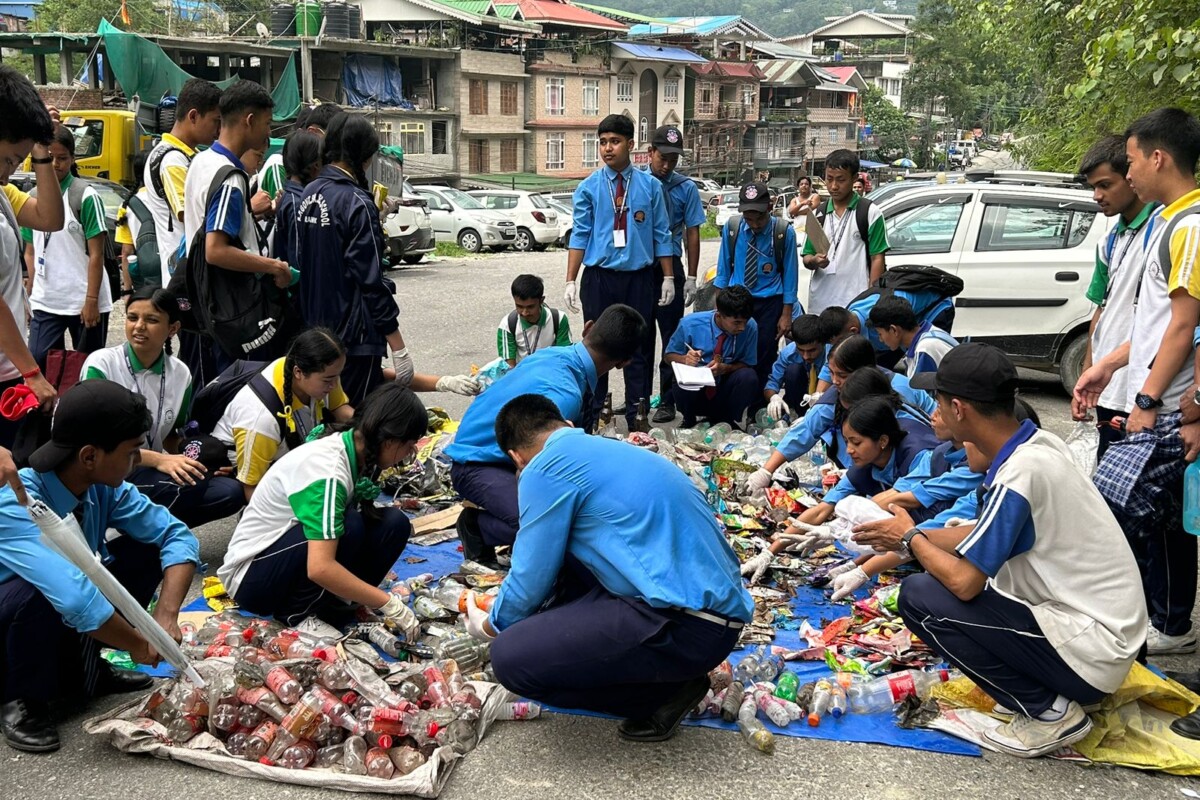Nonrecyclable food and beverage packaging dominates the trash littering the Indian Himalayas, according to a recent report. Since 2018, regional alliances Zero Waste Himalaya and Integrated Mountain Initiative have organized an annual campaign during the last week of May called The Himalayan Cleanup. Volunteers from schools and civil society organizations clean up sites across the Himalayas, followed by an audit identifying waste types and associated brands. In 2024, more than 15,000 volunteers across nine Indian Himalayan states collected 121,739 pieces of waste. Of this, 106,856, or nearly 90%, was some sort of plastic. Food and beverage packaging made up 84.2% of all plastic waste, of which 77% was nonrecyclable multilayered plastics, including food wrappers, beverage bottles, juice boxes, bottle caps, sachets, cutlery, bags, straws and lollipop sticks. Being nonrecyclable, these plastics hold no value for waste pickers and scrap dealers, so they are “strewn across the Himalayas and piling up in the landfills,” Kapil Chhetri, from Zero Waste Himalaya, told Mongabay by email. “The logic of being able to recycle ourselves of this mess is clearly not possible as the product design is single use and nonrecyclable.” The 2024 cleanup’s brand audit revealed PepsiCo — owner of brands like Lays, Uncle Chips, Bingo and Kurkure — was the top polluting brand for the third straight year. A “dramatic increase” in bottles of PepsiCo-owned Sting, a sugar-rich energy drink, has been a particularly “alarming finding,” Chhetri said, adding that 20% of all beverage bottles collected during the cleanup were Sting bottles,…This article was originally published on Mongabay
From Conservation news via this RSS feed


